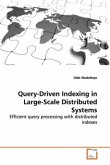There is a growing interest in discovery of internet
topology at the
interface level. A new
generation of highly distributed measurement systems
is currently
being deployed.
Unfortunately, prior to this thesis, the research
community has not
examined the problem
of how to perform such measurements efficiently and
in a network-
friendly manner. In this
book, we make several contributions toward that end.
First, we
show that standard
topology discovery methods are quite inefficient,
repeatedly probing
the same interfaces.
This is a concern, because when scaled up, such
methods will
generate so much traffic that
they will begin to resemble DDoS attacks. As it is
not unusual for a
route tracing monitor
to operate in isolation, we next propose and evaluate
strategies for
reducing redundancy
within a single monitor. We third propose and
evaluate Doubletree, a
cooperative algorithm
that reduces redundancy simultaneously on routers and
end
systems. Finally, we also
provide a generalization of Bloom filters, called
retouched Bloom
filters, that permits false
negatives in addition to false positives and allows a
trade-off
between the two.
topology at the
interface level. A new
generation of highly distributed measurement systems
is currently
being deployed.
Unfortunately, prior to this thesis, the research
community has not
examined the problem
of how to perform such measurements efficiently and
in a network-
friendly manner. In this
book, we make several contributions toward that end.
First, we
show that standard
topology discovery methods are quite inefficient,
repeatedly probing
the same interfaces.
This is a concern, because when scaled up, such
methods will
generate so much traffic that
they will begin to resemble DDoS attacks. As it is
not unusual for a
route tracing monitor
to operate in isolation, we next propose and evaluate
strategies for
reducing redundancy
within a single monitor. We third propose and
evaluate Doubletree, a
cooperative algorithm
that reduces redundancy simultaneously on routers and
end
systems. Finally, we also
provide a generalization of Bloom filters, called
retouched Bloom
filters, that permits false
negatives in addition to false positives and allows a
trade-off
between the two.







